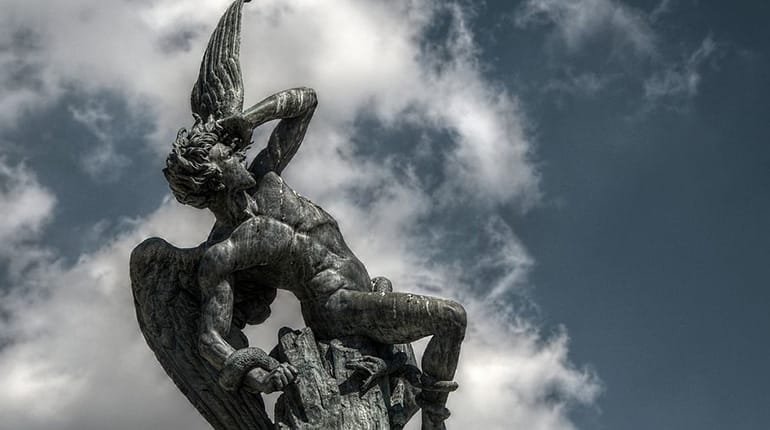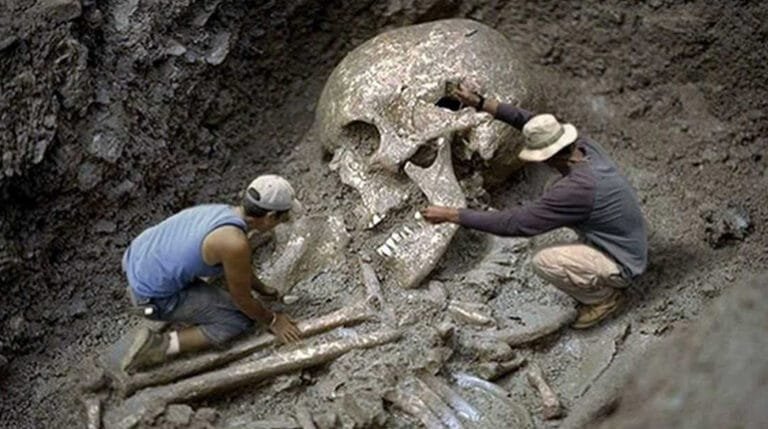Angels, Women, and the Genetic Crisis Before the Flood

The story of the Nephilim—a mysterious race of giants mentioned in Genesis 6—has intrigued scholars, theologians, and laypeople alike for centuries. Their origin is a point of contention among various interpretations of Biblical texts, particularly in Genesis 6:1-4, which illustrates a unique encounter between fallen angels and human women. This union resulted in the birth of the Nephilim, raising questions about their nature, purpose, and impact on the pre-Flood world. A pervasive interpretation of these passages suggests a significant genetic crisis occurred, compromising the purity of human DNA through this otherworldly intermingling. This narrative set the stage for God’s ultimate judgment and Noah’s critical role in preserving humanity’s genetic integrity.
As we delve deeper into this topic, we find ourselves grappling with profound questions surrounding creation, sin, and the consequences of moral decay. The text suggests that humanity had reached a level of corruption that warranted divine intervention, leading to the catastrophic events of the Flood. This narrative holds not only theological implications but also fascinating insights into humanity’s relationship with the divine and the impact of deviating from God’s intended order. Understanding the relationship between fallen angels, the women of Earth, and the resulting Nephilim allows us to explore the deeper meanings of Genesis and its lessons for humanity today.
Fallen Angels and Human Women
Genesis 6:1-2 provides the foundation for interpreting the emergence of the Nephilim. It reads: “Now it came to pass, when men began to multiply on the face of the earth, and daughters were born to them, that the sons of God saw the daughters of men, that they were beautiful; and they took wives for themselves of all whom they chose.” The phrase “sons of God” is traditionally understood as referring to fallen angels or celestial beings who descended to Earth. This interpretation has been supported by ancient Jewish texts, such as the Book of Enoch, which elaborate on the nature and actions of these angels.
The notion of fallen angels cohabiting with human women paints a complex picture of moral transgression. These beings, who originally inhabited a spiritual realm, manipulated God’s creation by bridging the gap between their divine essence and human fragility. This union not only created hybrid beings known as the Nephilim but also highlighted a significant deviation from God’s design for humanity. The beauty and allure of these women likely captivated the angels, prompting them to forsake their celestial purpose for earthly pleasures and desires.
Understanding the Nephilim
The Nephilim have often been described as giants, and their name can be translated to “fallen ones.” This interpretation hints at their origins and the curse associated with their existence. Their existence represents a fundamental breach of the natural order, blending the heavenly with the earthly, creating a race that was not meant to exist. The offspring of these unions not only posed physical threats due to their size and strength but also symbolized the spiritual corruption that was spreading among humanity.
In the context of Genesis, the presence of the Nephilim symbolizes the pervasive moral decay within human society. As these giants flourished, they likely contributed to an atmosphere of violence, chaos, and rebellion against God. The biblical narrative suggests that the Nephilim became influential figures, commanding respect yet instilling fear among those around them. Their very existence challenged the sanctity of human life, showcasing the dire consequences of straying from God’s intended creation and order.
The Genetic Crisis
As a result of the angels’ unions with human women, a catastrophic alteration of the genetic makeup of humanity began. Genesis 6:3 states, “And the Lord said, ‘My Spirit shall not strive with man forever, for he is indeed flesh; yet his days shall be one hundred and twenty years.'” This divine proclamation indicates a predetermined period before the flood that would ultimately cleanse the Earth. The introduction of Nephilim DNA into the human genetic pool posed unprecedented challenges, invoking God’s wrath and an urgency to restore purity among His creation.
The act of fallen angels breeding with women likely resulted in a wide variety of genetic variations, some of which may have been unnatural or corrupted. This genetic crisis could explain the enormity of the wickedness that prompted God’s decision to flood the Earth, as the lines between human identity and corruption began to blur. Humanity’s fall from grace is often articulated through the lens of sin, but in this context, the manipulations of the genetic code compound the issue, leading to not just moral but physical degradation.
God’s Judgment
In Genesis 6:13, we read, “And God said to Noah, ‘The end of all flesh has come before Me, for the earth is filled with violence through them; and behold, I will destroy them with the earth.'” Here, we witness a God who, upon observing the extent of human corruption and violence—exacerbated by the presence of the Nephilim—decides to bring about a cataclysm. This decisive act not only serves as retribution for sin but also as a mechanism for preserving purity through the covenant established with Noah.
Noah stands as a pivotal figure in this narrative. He is described as a righteous man, “perfect in his generations” (Genesis 6:9), indicating that his genetic code remained untainted. The emphasis on Noah’s lineage underscores the importance of purity in the face of rampant corruption. Thus, Noah and his family are chosen to carry forth the legacy of humanity after the Flood, becoming the vessel for a new beginning devoid of Nephilim influence.
Theological Implications of the Nephilim
The story of the Nephilim encapsulates significant theological implications, particularly regarding sin, judgment, and redemption. It serves as a cautionary tale, reminding us of the consequences of deviating from divine will. The unparalleled corruption witnessed before the Flood affirms the belief that humanity has the potential to stray far from God’s intended path when left unchecked. As seen in the case of the Nephilim, the blending of heavenly and earthly natures not only leads to moral decay but fundamentally threatens the integrity of creation.
The descent into chaos can be viewed as symbolic of the struggles faced throughout human history. The Nephilim experience is a foreshadowing of the challenges humanity endures when faced with moral compromise and ethical dilemmas. God’s decision to cleanse the world, while severe, reaffirms His intent to preserve the sanctity of creation. The Flood serves as a reset button, providing humanity—and the world—another chance to live according to God’s design.
Lessons from Noah’s Covenant
The covenant that God established with Noah after the Flood is a powerful testament to redemption. Through Noah, God offers humanity a new beginning, reinforcing the importance of obedience and faithfulness. The ark symbolizes not only physical salvation but also spiritual renewal, emphasizing the necessity of maintaining purity amidst a world laden with moral ambiguity.
Noah’s obedience serves as a challenge to contemporary believers. In a world increasingly influenced by external forces and choices that deviate from divine intention, Noah’s narrative calls for vigilance against moral decay. By adhering to God’s commands and upholding spiritual integrity, believers can navigate the complexities and challenges of the modern world while nurturing a legacy that aligns with divine purposes.
The Relevance of the Nephilim Today
Exploring the narrative of the Nephilim invites contemporary reflection on the ongoing debates surrounding genetic manipulation, the ethics of science, and the challenges of modernity. As humanity pushes the boundaries of technology, bioethics becomes increasingly relevant. While advancements hold the promise for healing and enhancement, they can inadvertently echo the spiritual crisis depicted in Genesis—a crisis born of crossing natural boundaries set by God.
The temptations to alter the human condition for personal or societal gain represent a modern parallel to the transgressions of the past. Just as the fallen angels strayed from their intended purpose, so too do current innovations risk straying from ethical considerations. Engaging with these issues necessitates thoughtful dialogue among scientists, ethicists, and theologians, ensuring that humanity does not pave a path toward unintended consequences.
A Call for Discernment
Ultimately, the story of the Nephilim offers a crucial reminder to remain vigilant against the temptation of crossing boundaries set forth by God. As society stands on the precipice of unprecedented change, the lessons contained within Genesis resonate with renewed urgency. The narrative serves not only as a historical account but as a theological exploration that beckons believers to uphold the principles of purity, ethics, and divine order in their lives.
Conclusion
The account of the Nephilim and the events leading to the Flood presents a distinctive theological narrative, rich in implications for understanding humanity’s relationship with the divine. Fallen angels united with human women, resulting in the Nephilim, not only signify a genetic crisis but echo the deeply spiritual consequences of moral decay. Through this, we learn about the need for purity, obedience, and the preservation of God’s original intent for creation.
The ultimate redemption found in Noah’s covenant serves as a beacon of hope amidst chaos, illustrating God’s unwavering commitment to His creation. As we reflect on the lessons of the past, we are prompted to approach modern dilemmas involving ethics and genetic manipulation with discernment. Embracing the narrative of the Nephilim compels a re-examination of our choices and the implications they carry for future generations. In striving to align our lives with God’s purposes, we honor the sacred complexity of creation, ensuring that humanity remains rooted in divine intention as we navigate a rapidly changing world.






